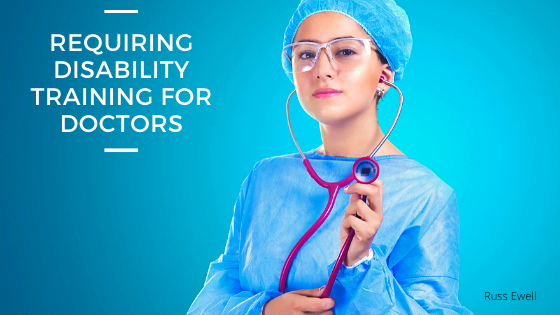People with disabilities and their advocates have spent years pushing for a requirement that medical schools begin to specifically train students on treating people with developmental and intellectual disabilities. It may come as a surprise, however, there is currently no standard for such training in the medical community.
In 2019 two proposals were made that would have established a mandate on the standard curriculum of medical schools to include training on the treatment of developmental and intellectual disabilities. The Liaison Committee on Medical Education (LCME), a group sponsored by the American Medical Association and the Association of American Medical Colleges rebuffed the proposals.
Now, in 2020 the committee responsible for creating the minimum standards for curriculum are set to discuss a new, revised version of one of the proposals. The new effort will better prepare future doctors and healthcare professionals to treat people with developmental disabilities.
$1.75 million has been allocated by the U.S. Department of Health and Human Services Administration for Community Living that will go towards a new initiative over the next five years. As of now, there are five universities that will begin studies on the existing training and create new standardized practices and materials to be incorporated into medical schools’ curriculum.
The new curriculum being developed will be implemented first at Rush University, St. John Fisher College, the University of Illinois at Chicago, the University of Minnesota, and Villanova University. There are 30 other schools that will ultimately include the training across a number of healthcare fields.
The project, “Partnering to Transform Health Outcomes with Persons with Intellectual Disabilities and Developmental Disabilities” will be assisted by people with developmental and intellectual disabilities as well as their families through every stage of the training process.
This latest effort by medical professionals and educators to address just how limited doctors’ knowledge of developmental disabilities is. The ultimate goal of the program is to improve the quality of care and the health outcomes for individuals with these disabilities. By better preparing doctors the future of health care will improve immensely, as a population of people, long overlooked, finally get the acknowledgment necessary.
